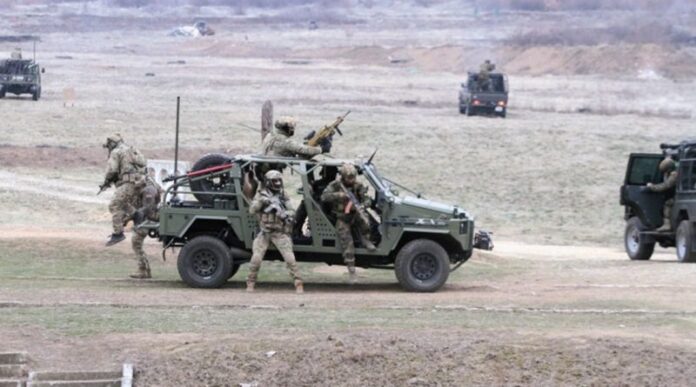
Bulgaria’s Parliament voted on October 30 to approve the second and final reading of amendments to the Defence and Armed Forces Act, marking a significant update to the country’s military legislation.
The amendments authorise the use of weapons or technical means by the armed forces against drones that pose threats to military installations, equipment, or personnel. This measure aims to enhance national security amid rising concerns about unmanned aerial incursions near sensitive facilities.
Lawmakers also agreed to extend by two years the age limit for military personnel who have not yet exercised their right to a pension. The change aligns with the provisions of the Social Security Code and is expected to help retain experienced officers in active service.
Another major update introduces a clear definition of the term “deterrence” in the context of Bulgaria’s defence strategy, as well as explicit regulation outlining the functions and responsibilities of the Supreme High Command during crises or wartime conditions.
The revised legislation further broadens the scope for declaring a state of emergency and activating the armed forces in the event of armed conflict or national threat. Officials say this measure will enable faster and more coordinated responses to evolving security challenges.
In addition to operational changes, the amendments include expanded social benefits for military personnel, such as the introduction of paternity leave for fathers upon the birth or adoption of a child. The law also extends opportunities for vocational training within military colleges to support professional development and career transitions.
Defence analysts have welcomed the inclusion of modern drone defence provisions, noting that similar policies have been adopted by several NATO member states to safeguard against evolving aerial threats.
In a separate vote on the same day, Members of Parliament ratified an international treaty updating the deadlines for the implementation of Bulgaria’s contract with the United States for the supply of AIM-9X Block II missiles. The agreement ensures the continuity of Bulgaria’s air defence modernisation programme, part of its broader NATO commitments.
The Ministry of Defence hailed the passage of the amendments as a step forward in strengthening Bulgaria’s military readiness and aligning national legislation with current security realities.
With these changes, Bulgaria reinforces its position as a proactive NATO ally, capable of responding to emerging defence challenges while ensuring improved welfare for its service members.
